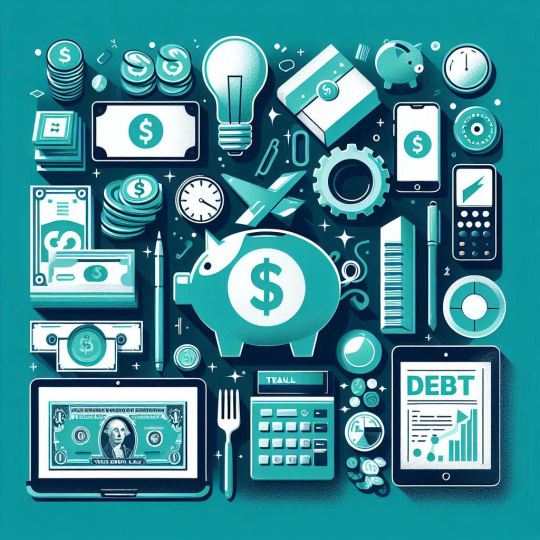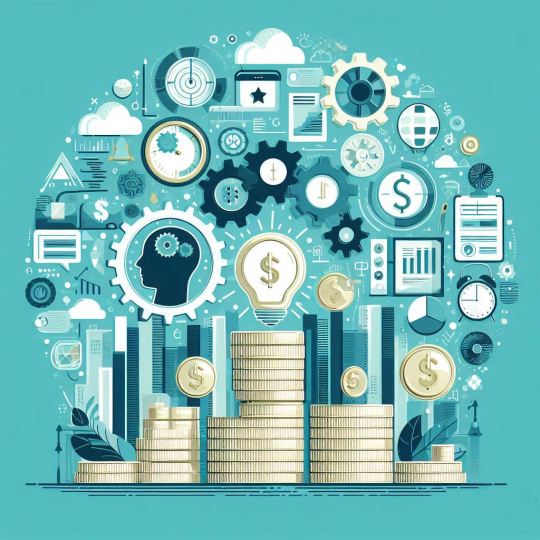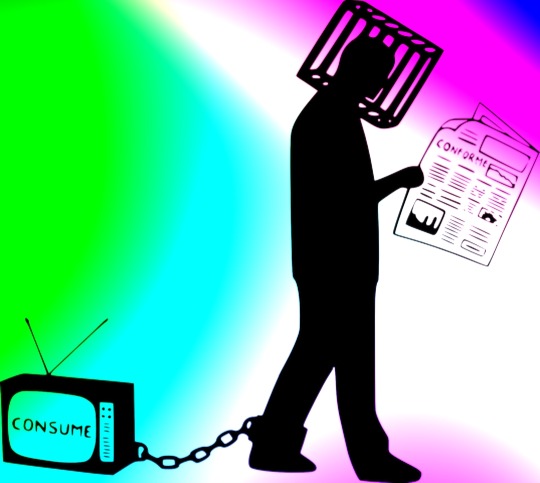#personal loan minimum interest rate
Text
Unlocking the Power of Instant Personal Loans
The concept of online application and quick approvals
In the realm of modern finance, the concept of instant personal loans has revolutionized the way individuals access much-needed funds. This paradigm shift is attributed to the seamless online application process, which allows borrowers to submit their loan requests from the comfort of their homes. Gone are the days of tedious paperwork and long waiting times. With just a few clicks, applicants can fill out user-friendly online forms, providing essential personal and financial details. What truly sets instant personal loans apart is their lightning-fast approval process. Thanks to advanced algorithms and automated verification systems, lenders can quickly assess the applicant's eligibility and creditworthiness. This means that within a remarkably short span, borrowers receive responses regarding their loan status. The speed of this process is a game-changer, making instant personal loans a dependable solution for emergencies and urgent financial needs.
Moreover, instant personal loans cater to a diverse range of financial requirements. While the loan amounts can vary depending on the lender and the borrower's profile, they typically cover a spectrum from a few hundred Rupees to several thousand. This versatility ensures that borrowers can access funds for a wide array of purposes, from addressing minor financial setbacks to funding more substantial investments. Whether it's repairing a broken appliance, covering medical expenses, or even financing a small-scale business venture, the range of loan amounts associated with instant personal loans provides borrowers with the flexibility to choose a sum that aligns with their immediate needs. This accessibility, coupled with the efficiency of online application and quick approvals, transforms the lending landscape, making it more responsive, user-centric, and tailored to the fast-paced realities of today's world.
Benefits of Instant Personal Loan
Certainly, here are the key advantages of opting for instant personal loansl loans. For instance, a tech startup secured an unsecured loan to expand its software development operations. Despite lacking substantial collateral, the startup's promising business model and strong credit profile convinced the lender to extend the necessary funds. Similarly, a local manufacturing company obtained a working capital loan to manage seasonal fluctuations in demand and maintain inventory levels. This injection of funds enabled the company to seize growth opportunities and enhance its market presence. Additionally, a creative agency utilized invoice financing to bridge cash flow gaps caused by extended client payment cycles. By leveraging their outstanding invoices, the agency accessed immediate funds, ensuring timely project execution and client satisfaction. These real-life examples underscore how non-collateral loans can catalyze business growth and success.
Convenient Online Application: One of the standout advantages is the convenience of applying online. With user-friendly interfaces and straightforward application forms, borrowers can initiate the loan process from the comfort of their homes. This eliminates the need for in-person visits to banks and saves valuable time.
Quick Approval Process: Instant personal loans employ advanced technology and automated verification systems that expedite the approval process. Lenders can assess your eligibility and creditworthiness swiftly, often providing loan decisions within minutes or hours of application submission.
Flexible Repayment Options: These loans come with flexible repayment plans that can be tailored to suit your financial situation. Whether you prefer shorter repayment terms or need a more extended period, instant personal loans offer options that align with your capacity to repay.
No Collateral Requirement: Most instant personal loans are unsecured, meaning you don't have to put up collateral, such as property or assets, to secure the loan. This makes them accessible to a broader range of borrowers who might not have significant assets to pledge.
Digital Convenience: The digital nature of instant personal loans aligns well with the modern lifestyle. The entire process, from application to repayment, can be managed online, offering a seamless and hassle-free borrowing experience.
In summary, the key advantages of instant personal loans revolve around their speed, convenience, flexibility, and accessibility, making them a practical solution for individuals seeking swift financial support.

How Instant Personal Loans Work
Researching and selecting a reputable lender: When researching and selecting a reputable lender for an instant personal loan, it's essential to evaluate factors like customer reviews, interest rates, fees, and the lender's track record. Opting for a well-established lender with transparent terms ensures a reliable borrowing experience and minimizes potential risks.
Filling out the online application form: Filling out the online application form for an Instant Personal Loan involves providing accurate personal and financial details, including identification information, employment details, income, and the desired loan amount. This step is crucial for initiating the loan process and ensuring a smooth and efficient application experience.
Providing necessary documents: Providing necessary documents for an Instant Personal Loan entails submitting identification proof, address verification, income documents, and bank statements as required by the lender. These documents are essential for verifying your eligibility and expediting the loan approval process.
Emphasize the speed and efficiency of each step: Emphasizing the speed and efficiency of each step in the Personal Loan application process highlights how quickly borrowers can move from application to approval, thanks to advanced algorithms and automated verification systems. This streamlined approach ensures that borrowers receive timely responses and access to funds, making the lending process remarkably swift and hassle-free.
Eligibility Criteria and Requirements
The general eligibility criteria for Instant Personal Loans encompass several key factors. These typically include age, with most lenders requiring applicants to be between 18 and 65 years old. Additionally, a stable source of income, often demonstrated through employment or regular earnings, is crucial to showcase the borrower's ability to repay the loan. Furthermore, a reasonable credit score is commonly considered, ensuring a certain level of creditworthiness. Meeting these criteria plays a pivotal role in determining eligibility for instant personal loans, allowing lenders to assess the applicant's financial stability and likelihood of repayment.
Tips for Successful Loan Applications
Improving Credit Score:
Enhancing your credit score significantly boosts your approval prospects. Prioritize timely payments on existing debts and credit cards, and ensure your credit utilization remains reasonable. Regularly monitoring your credit report helps you spot and rectify errors that might be affecting your score negatively. A healthier credit score not only increases the likelihood of approval but may also result in more favorable loan terms.
Providing Accurate Information:
Honesty and accuracy when filling out the application form are paramount. Providing truthful information about your income, employment status, and financial obligations builds trust with the lender. Any discrepancies between the information you provide and what the lender finds during verification can raise red flags and jeopardize your chances of approval.
Applying with a Co-applicant, if Possible:
If your individual creditworthiness falls short, considering a co-applicant with a stronger financial profile can enhance the chances of approval. A co-applicant with a better credit score and stable income can strengthen the overall application, assuring the lender of a robust repayment capacity. However, it's crucial that both you and your co-applicant understand the responsibilities and implications of joint borrowing.
Implementing these practical steps not only increases your chances of obtaining approval for an instant personal loan but also contributes to a more solid financial foundation overall
Conclusion
In the realm of rapidly evolving financial solutions, instant personal loans have emerged as a dynamic tool to address urgent monetary needs with efficiency and convenience. As you navigate the intricate landscape of borrowing, remember that Mpower Credcure is here to empower your financial journey. Whether it's a medical emergency, unexpected repairs, or bridging gaps between paychecks, the speed and accessibility of instant personal loans offer a dependable lifeline. By exploring this avenue, you're equipping yourself with a swift and reliable resource to meet unforeseen challenges head-on. At Mpower Credcure, we stand ready to assist you in securing the funds you require, helping you regain control over your financial circumstances and stride confidently toward a more secure future.
#loan for low interest#best personal loan from bank#personal loan provider company#online loan provider#personal loan minimum interest rate#personal loan approval in minutes#rate personal loans
0 notes
Link

Click here to know personal loan interest rates as it varies from bank to bank. Also, understand how to calculate interest on personal loan at IndiaLends.
#online personal loan#personal loan minimum interest rate#personal loan interest rates in bank#personal loan interest rates in India#personal loan interest rate#personal loan rates
0 notes
Text
Discover the essential credit score needed for securing a personal loan in this insightful article by Saurabh. Learn how your credit score influences loan approval, the ideal score range, and tips to improve your chances of getting approved. Perfect for anyone looking to understand personal loan criteria and enhance their financial health. Read more
#Credit score range for personal loans#Minimum credit score for loan approval#Personal loan credit requirements#Best personal loans for different credit scores#Credit score impact on loan interest rates#How to improve credit score for loan approval#Factors influencing personal loan approval#Bad credit personal loans#Unsecured personal loans and credit score#Credit score needed for online personal loans
0 notes
Text
Ko-Fi prompt from Isabelo:
Hi! I'm new to the workforce and now that I have some money I'm worried it's losing its value to inflation just sitting in my bank. I wanted to ask if you have ideas on how to counteract inflation, maybe through investing?
I've been putting this off for a long time because...
I am not a finance person. I am not an investments person. I actually kinda turned and ran from that whole sector of the business world, at first because I didn't understand it, and then once I did understand it, because I disagreed with much of it on a fundamental level.
But... I can describe some factors and options, and hope to get you started.
I AM NOT LEGALLY QUALIFIED TO GIVE FINANCIAL ADVICE. THIS IS NOT FINANCIAL ADVICE.
What is inflation, and what impacts it?
Inflation is the rate at which money loses value over time. It's the reason something that cost 50 cents in the 1840s costs $50 now.
A lot of things do impact inflation, like housing costs and wage increases and supply chains, but the big one that is relevant here is federal interest rates. The short version: if you borrow money from the government, you have to pay it back. The higher the interest rates on those loans, the lower inflation is. This is for... a lot of reasons that are complicated. The reason I bring it up is less so:
The government offers investments:
So yeah, the feds can impact inflation, but they also offer investment opportunities. There are three common types available to the average person: Bonds, Bills, and Notes. I'll link to an article on Investopedia again, but the summary is as follows: You buy a bill, bond, or note from the government. You have loaned them money, as if you are the bank. Then, they give it back, with interest.
Treasury Bills: shortest timeframe (four weeks to a year), and lowest return on investment. You buy it at a discount (let's say $475), and then the government returns the "full value" that the bond is, nominally (let's say $500). You don't earn twice-yearly interest, but you did earn $25 on the basis of Loaning The Government Some Cash.
Treasury Notes: 2-10 year timeframe. Very popular, very stable. Banks watch it to see how they should plan the interest rates for mortgages and other large loans. Also pretty high liquidity, which means you can sell it to someone else if you suddenly need the cash before your ten-year waiting period is up. You get interest payments twice a year.
Treasury Bonds: 20-30 years. This is like... the inverse of a house mortgage. It takes forever, but it does have the highest yield. You get interest payments twice a year.
Why invest money into the US Treasury department, whether through the above or a different government paper? (Savings bonds aren't on sold the set schedule that treasury bonds are, but they only come in 30-year terms.)
It is very, very low risk. It is pretty much the lowest risk investment a person can make, at least in the US. (I'm afraid I don't know if you're American, but if you're not, your country probably has something similar.)
Interest rates do change, often in reaction or in relation to inflation. If your primary concern is inflation, not getting a high return on investment, I would look into government papers as a way to ensure your money is not losing value on you.
This is the website that tells you the government's own data for current yield and sales, etc. You can find a schedule for upcoming auctions, as well.
High-yield bank accounts:
Savings accounts can come with a pretty unremarkable but steady return on investment; you just need to make sure you find one that suits you. Some of the higher-yield accounts require a minimum balance or a yearly fee... but if you've got a good enough chunk of cash to start with, that might be worth it for you.
They are almost as reliable as government bonds, and are insured by the government up to $250,000. Right now, they come with a lower ROI than most bonds/bills/notes (federal interest rates are pretty high at the moment, to combat inflation). Unlike government papers, though, you can deposit and withdraw money from a savings account pretty much any time.
Certificates of Deposit:
Okay, imagine you are loaning money to your bank, with the fixed term of "I will get this money back with interest, but only in ten years when the contract is up" like the Treasury Notes.
That's what this is.
Also, Investopedia updates near-daily with the highest rates of the moment, which is pretty cool.
Property:
Honestly, if you're coming to me for advice, you almost definitely cannot afford to treat real estate as an investment thing. You would be going to an actual financial professional. As such... IDK, people definitely do it, and it's a standby for a reason, but it's not... you don't want to be a victim of the housing bubble, you know? And me giving advice would probably make you one. So. Talk to a professional if this is the route you want to take.
Retirement accounts:
Pension accounts are a kind of savings account. You've heard of a 401(k)? It's that. Basically, you put your money in a savings account with a company that specializes in pensions, and they invest it in a variety of different fields and markets (you can generally choose some of this) in order to ensure that the money grows enough that you can hopefully retire on it in fifty years. The ROI is usually higher than inflation.
These kinds of accounts have a higher potential for returns than bonds or treasury notes, buuuuut they're less reliable and more sensitive to market fluctuations.
However, your employer may pay into it, matching your contribution. If they agree to match up to 4%, and you pay 4% of your paycheck into an pension fund, then they will pay that same amount and you are functionally getting 8% of your paycheck put into retirement while only paying for half of it yourself.
Mutual Funds:
I've definitely linked this article before, but the short version is:
An investment company buys 100 shares of stock: 10 shares each in 10 different "general" companies. You, who cannot afford a share of each of these companies, buy 1 singular share of that investment company. That share is then treated as one-tenth of a share of each of those 10 "general" companies. You are one of 100 people who has each bought "one stock" that is actually one tenth of ten different stocks.
Most retirement funds are actually a form of mutual fund that includes employer contributions.
Pros: It's more stable than investing directly in the stock market, because you can diversify without having to pay the full price of a share in each company you invest in.
Cons: The investment company does get a cut, and they are... often not great influences on the economy at large. Mutual funds are technically supposed to be more regulated than hedge funds (which are, you know, often venture capital/private equity), but a lot of mutual funds like insurance companies and pension funds will invest a portion of their own money into hedge funds, which is... technically their job. But, you know, capitalism.
Directly investing in the stock market:
Follow people who actually know what they're doing and are not Evil Finance Bros who only care about the bottom line. I haven't watched more than a few videos yet, but The Financial Diet has had good energy on this topic from what I've seen so far, and I enjoy the very general trends I hear about on Morning Brew.
That said, we are not talking about speculative capital gains. We are talking about making sure inflation doesn't screw with you.
DIVIDENDS are profit that the company shares to investors every quarter. Did the company make $2 billion after paying its mortgages, employees, energy bill, etc? Great, that $2 billion will be shared out among the hundreds of thousands of stocks. You'll probably only get a few cents back per stock (e.g. Walmart has been trading at $50-$60 for the past six months, and their dividends have been 57 cents and then 20.75 cents), but it adds up... sort of. The Walmart example is listed as having dividends that are lower than inflation, so you're actually losing money. It's part of why people rely on capital gains so much, rather than dividends, when it comes to building wealth.
Blue Chip Stocks: These are old, stable companies that you can expect to return on your investment at a steady rate. You probably aren't going to see your share jump from $5 to $50 in a year, but you also probably won't see it do the reverse. You will most likely get reliable, if not amazing, dividends.
Preferred Stocks: These are stock shares that have more reliable dividends, but no voting rights. Since you are, presumably, not a billionaire that can theoretically gain a controlling share, I can't imagine the voting rights in a given company are all that important anyway.
Anyway, hope this much-delayed Intro To Investing was, if not worth the wait, at least, a bit longer than you expected.
Hey! You got interest on the word count! It's topical! Ish.
#economics#capitalism#phoenix talks#ko fi#ko fi prompts#research#business#investment#finance#treasury bonds#savings bonds#certificate of deposit#united states treasury#stocks#stock market#mutual funds#pension funds
65 notes
·
View notes
Text
Fuck it! US Private Student Loans Guide!
DISCLAIMER: while I have worked in private loans specifically for five+ years, this isn't ‘financial’ advice and is just a heavily summarized guide on how to navigate them. Yes, these loans suck, but complain to your legislators not me. I’m just trying to help you know what you’re doing. Additional info for each section is under the cut!
1) Who are you and who are all the companies constantly running around with my money?
I work in loan SERVICING, which is basically the billing department. If you’ve got a new company asking you for money, it's probably a new servicer and your debt is still owned by the bank. We enforce the terms in the promissory note, the document you sign telling the bank “yeah I'll play by your rules if you give me the money.” If your loan defaults, you’ll get contacted by a third (fourth?) party, but how that works is beyond my wheelhouse. The bank or your servicer should be able to confirm what happens in case of default.
2) What am I looking for in a ‘good’ loan?
Generally, you’re going to want SIMPLE instead of compound interest, a FIXED RATE opposed to a variable one, and you’ll want to go for FULL DEFERMENT while in school and make manual payments when you can. Also ask up front about stuff like if disability forgiveness or co-signer release (getting your parents off it) is offered.
3) This loan sucks! How do I make it better?
Student loans are NOTORIOUSLY hard to get out of, unfortunately. If the interest rate/payment relief options suck, you can try to REFINANCE where you take out a new loan to pay off the old one. This gives you a new promissory note, interest rate, and terms/conditions. If you’re trying to erase the debt entirely, ask for the promissory note (if they can't provide a copy, we have to forgive the debt. I've only seen this happen ONCE.) or try to go through social security disability.
DO NOT USE FREEDOM DEBT RELIEF OR OTHER SERVICES. DO NOT. THEY ARE SCAMS.
More in depth information for each point!
1) Lenders and Servicers
The lender is the person who provides the funds in the debt - the bank who pays the school or the hospital or the home contractor fixing your sink. The servicer is the company that is your point of contact when you need to make payments, ask for payment relief, or otherwise manage the loan that exists. Think of us as the mechanic (we keep the car running) where the bank is the manufacturer (they make the car). Some different servicers are SoFi, Zuntafi, Great Lakes, Nelnet and Firstmark Services; their names will be on the billing statements. Some different banks are Citizens, US Bank, NorthStar; their names will be on the promissory note and the disclosures.
Sometimes banks do sell the debt, however! A couple years ago Wells Fargo sold an enormous chunk of their loans off somewhere (an investment group, maybe?) but! The promissory note will still be the EXACT same if your debt gets sold. You’ll only get a new promissory note if you refinance the loan yourself.
2a) Interest Accrual and Rates
Interest is how banks profit off the loans they give out and/or ‘ensure they don't end up with a loss if the loan defaults’. (It's profit.) Most, but not all, loans calculate interest with the simple daily interest formula, shown below:
[(Current loan balance) x (interest rate)] divided by 365
If your loan’s balance is $10,000 and your interest rate is 6% you’ll be charged $1.64 each day. SIMPLE INTEREST means that this interest just kind of floats around on the account until a payment comes in and pays it off, where COMPOUND adds that interest to the balance at the end of the month/day/whatever. Compound charges you more over the life of the loan.
FIXED INTEREST is a set percent that doesn't change, where VARIABLE will change usually based on whatever the economy is doing. There’s a minimum and maximum value to the variable interest rates, so if you’re doing a variable ASK WHAT THE MINS AND MAXES ARE. A fixed rate might be 8% and a variable might be 3.25% the day you take it out, but that variable could have a maximum interest rate of 25% so be VERY, VERY CAREFUL. If you get stuck in a real bad variable interest rate, your best solution is probably a refinance.
2b) Deferment and Payment Allocation
So interest is gonna be accruing on your loan from the day the money leaves the bank. Sucks. And you may not be able to make payments while you're in school, so opting to DEFER your payments will stop them from billing you so you can skip a month or whatever without penalty. At the END of that deferment, though, whatever interest that accrued will be added to your current balance. If we use the example from above (10k loan with 1.64 daily interest) four years of school will add $2,400 to your balance and then your daily interest will jump up to $2.03 a day.
Solution? Make payments of what you can while you’re in school to chip away at that floating interest. Usually when you make a payment, it’s gonna go towards the interest first and then the rest drops the balance. (E.g. if you make a $20.00 payment ten days after your loan is disbursed, $16.40 will go towards interest and $3.60 towards your 10k balance). There is NO PENALTY for making extra payments or making early payments, but it might make your bills look a little weird if you’re being billed each month for just the interest.
3) Why are these loans so horrible? Can’t I find anything to help me?
Blame Reagan and the republicans who enabled him.
No, but really. The problem with these loans is that those promissory notes are VERY legally binding and have lots of fine print in there designed to make it as hard as possible for someone to skimp out on their debt without having their credit score decimated. Some lenders might even dip into your paychecks if you're crazy behind or default; again, that's not my wheelhouse and I've only maybe seen that once. Your best bet is just to pay it off as fast as possible (again, no penalty for paying the loan off early) or refinance into better terms.
And I get it. I really do. I hate how we’ve made so many incredibly important things in our society locked behind a paywall that charges poor people more to climb than the rich. But if you’ve made it this far, please don't turn your anger at me for not giving you the answers you want. The best I can do is vote for people who are willing to crack down on predatory lending, keep fighting for student loan forgiveness… and at my own job, make sure that my coworkers aren't making mistakes.
If you have a more specific question, I can try to answer as best I can without breaking any information privacy laws. And take care, okay? You are never fighting alone.
#private loans#student loans#school loans#loan forgiveness#long post#credit score#credit services#debt relief#debt consolidation#I spent like two weeks off and on with this PLEASE REBLOG but also PLEASE BE NICE
186 notes
·
View notes
Text
Comparing Presidential candidates Robert F Kennedy Jr. Independent candidate:
Robert F Kennedy Jr. Independent candidate;
“Robert F. Kennedy Jr., the 69-year-old heir to the famed political family, launched his presidential campaign in April 2023. But the longtime environmental activist announced in October he would drop his Democratic bid and re-enter the race for the White House as an independent. The junior Kennedy has called the traditional two-party system “rigged” for Americans and is campaigning on a platform targeting institutions such as pharmaceutical and tech companies.”
“Climate change
Kennedy spent more than 20 years as an environmental lawyer, with his advocacy focusing on clean water, the environment and human rights. His campaign’s environmental policies focus on shifting agricultural subsidies to encourage more sustainable practices. He has also proposed incentivizing industries to use clean energy sources in an effort to reduce toxic waste, industrial poisons and pesticides. Kennedy has said he also wants to reduce corporate connections with federal agencies like the U.S. Department of Agriculture and the Food and Drug Administration to allow them to focus on protecting the environment.”
“Crime & policing
Kennedy is campaigning on “transforming” the police, rather than defunding them. He has said he wants to incentivize police to prevent violence and avoid making unnecessary arrests. Kennedy is also campaigning on training police officers in de-escalation techniques and mediation skills and establishing partnerships with local organizations to create a new relationship with the public that is not adversarial. With Kennedy's platform on crime, police will focus on serious crimes instead of targeting a larger pool of Americans.”
“Education
Kennedy has several proposals for reducing student loan debt. His platform would allow students to refinance their student loans at lower interest rates to reduce monthly payments. He is also urging Congress to pass legislation to abolish interest on new and existing student loans. The junior Kennedy is campaigning on placing the responsibility on schools, instead of loan institutions and banks, when it comes to loan defaults in an effort to incentivize universities to lower tuition costs. Additionally, Kennedy backs expanding higher educational opportunities related to trades – like electricians, plumbers and mechanics — and explore funding opportunities to students who are pursuing this work.”
“Economy
Kennedy says Americans need a president who cares about their personal economy — not an economy centered around war or Wall Street. He campaigns on America’s current economic system making expenses unaffordable for most Americans. He also advocates for prosecuting union-busting corporations so labor groups can organize and negotiate fair wages. Kennedy wants to raise the minimum wage to $15, expand free childcare programs and drop housing costs by $1,000 per family. Kennedy has proposed cutting some military expenses, barring corporate bailouts and other proposals to fund his economic platform.”
“Foreign policy
Kennedy’s foreign policy looks to bring troops home, stop racking up the nation’s debt in conflicts and put an end to what he calls proxy wars. In Ukraine, Kennedy wants to end the suffering of Ukranian people by helping them defend their country. However, he supports finding a diplomatic solution to bring peace to Ukraine while bringing home U.S. resources. For example, Kennedy has questioned whether current American efforts in the war-torn nation serve to help Ukrainians or use the country’s people as a “pawn to weaken Russia.”
“Health care
Kennedy has come under fire for false medical claims, particularly that vaccines are linked to autism. He received backlash, even being banned on Instagram, for criticizing governmental COVID-19 restrictions and spreading misinformation about the virus. He started the Children’s Health Defense, a nonprofit organization that focuses on anti-vaccine messaging. Kennedy champions lowering chronic disease rates in children, saying he would not want to be reelected if he has not significantly reduced disease among children by the end of his potential first term.”
“Immigration
Kennedy views the situation at the southern border as a humanitarian crisis. If elected, he would focus on securing the border with a goal of ending illegal immigration while expanding America’s lawful immigration system. His immigration policy looks to first get the border under control and then work with other countries to stem the tides of migrants. Kennedy also wants to fund and prioritize immigration infrastructure, which includes further funding services like courts and border agencies to handle asylum cases”
“Reproductive rights
Kennedy’s stance on abortion has been unclear throughout his campaign. The independent presidential contender said he would support a federal abortion ban after the first three months of pregnancy at the Iowa State Fair in Summer 2023. He later walked back the comments, and his campaign released a statement that Kennedy supports a woman’s right to choose and does not support legislation banning abortion. He previously told USA TODAY he feels the government should not be telling people what to do with their bodies, and it should be up to the woman during the first three months of pregnancy.” {Source USAtoday.com}
There is no official Statement from RFK jr on Palestine but its been reported that he quote “Opposes a ceasefire in Gaza” And quote.
#trending#political activist#young politicians#global politics#politicians#political#politics#robert f kennedy jr#rfk jr#the kennedys#Gaza#2024 presidential election#election 2024#independent party#tags for attention#kpop#taylor swift#beyonce#nyilight#Nyi
3 notes
·
View notes
Text
Millennials Money Tips for Personal Finance
It is very difficult for millennials to manage their own finances today as the world of competition requiring one to workout harder has changed in a matter of months. From student loan debt to increasing living costs, this generation has faced financial struggles that are all its own. Nevertheless, there are strategies out there that can work for the millennial in search of sustainable financial security or even just a better bottom line. Below are a few of the basic personal finance tips for millennials.
1. Set Clear Financial Goals
The first step in any financial plan is establishing specific and attainable goals. Whether it's to buy a home, pay off your student loans, or save for retirement — knowing what you're working towards will keep you more engaged and inspired. Divide your goals into short-term (one to two years), medium-term (three to five years) and long-(five or more). This approach helps you to prioritize and use your resources accordingly.
2. Create and Stick to a Budget

The Facet of Financial Management: Budgeting Track your income and expenses: The very first step is to track how much you are earning, after that what things consume your bills? Budgeting tools; you may use an app to categorize what you spend on and where they can be reduced. If possible, adhere to the 50/30/20 rule — apportion half of your funds towards needs and twenty percent for saving or repaying debt.
3. Build an Emergency Fund
It is only a rainy day fund to act as an emergency safety net in case life decides not to follow your plan. The hopefully three to six months of absolute must-have sequestered in a separate, liquid account. It can help you with the cost of surprising expenses–whether they be medical bills or it lets you maintain your financial schedule, rather than having a huge hole in it due to car repairs.
4. Manage Debt Wisely

For many millennials, student loan debt can be a large financial weight. Start your payoff journey with high-interest debt — credit card balances are a solid place to begin. Refinance or consolidate student loans at a lower interest rate. Establish and Maintain a HISTORY of consistent on-time payments to improve your credit score, reducing overall debt.
5. Invest for the Future
If you want to create wealth then investment is the most important thing for it. If your employer offers a matching 401(k) plan, that is what you should start with. Demand more investment options like IRAs, Stocks and Mutual Funds. Simply Diversify A toasted way to diversification! The point is that, your money should earning with compounding.
6. Enhance Financial Literacy

One can be really good at making informed decision which is backed by financial literacy. Use online sources, books and courses to learn more about personal finance. Understanding concepts such as interest rates, inflation and investment options can help you make more informed financial decisions.
7. Plan for Retirement
Architecting retirement: It is never too early to plan for retirement. Save a minimum of 15% of your income toward retirement. Make use of Roth IRAs and traditional IRA tax-advantaged accounts. You may want to talk with a financial advisor who can help you put together your own retirement plan based on what you hope for in retirement and how much risk you are willing to take.
8. Protect Your Assets

But while it may not be the sexiest asset class around, insurance is integral to any complete financial plan. Make sure of health, auto and and home insurance coverage. Good idea: If you have dependents, consider life insurance. Disability insurance provides you income in the event of an illness or injury.
9. Check Your Credit Score
Great credit can unlock lower-interest rates and financial possibilities. Review your credit report on a regular basis for inaccuracies and work towards building up the score. By paying your bills on time, keeping credit card balances low and only opening new accounts when you need them (and therefore improved scores so long as other key factors don't weigh in ).
10. Seek Professional Advice

If you are unsure of where to begin or need help, then speak with a financial advisor. They can give you advice and even consult with you to build a financial plan as well. Also look for a good pedigree — Certified Financial Planner (CFP) or Chartered Financial Analyst (CFA).
With these personal finance tips, a millennial can move forward in the financial journey feeling more secure for their future. Earning money is only part of the process… its mastering discipline, consistency and continuous learning that leads to long-term financial success.
#millionaire#millionarelifestyle#investing#investment#personal finance#startup#business#entrepreneur#economy#mindset#luxury#luxurious
2 notes
·
View notes
Text
HOW TO USE DSCR LOANS
How Investors Benefit from DSCR Loans in Real Estate
DSCR, or Debt Service Coverage Ratio, is a metric used by lenders to assess a borrower's ability to repay a loan, particularly in real estate investing. For investors, DSCR loans offer some unique advantages compared to traditional financing:
Benefits for Investors:
Qualify for Financing: Traditional lenders often impose strict qualifying criteria based on income and credit score. DCSR loans focus on the potential cash flow of the property itself, allowing investors with lower income or limited credit history to qualify.
Access Higher Leverage: DSCR loans typically allow for higher loan-to-value ratios (LTVs) compared to conventional mortgages. This means you can put down less money upfront, freeing up capital for other investments.
More Flexible Properties: While traditional loans often exclude certain property types like mixed-use or non-owner occupied, DCSR loans can be used for a wider range of properties, increasing investment options.
Faster Closing Times: Due to the focus on property cash flow rather than personal finances, DSCR loans generally have faster processing and closing times.
Understanding DSCR:
The DSCR is calculated by dividing the property's Net Operating Income (NOI) by the annual debt service (principal and interest payments). A higher DSCR indicates a stronger ability to service the loan. Typical minimum DSCR requirements for DSCR loans range from 1.15 to 1.25, depending on the lender and property type.
Important points:
Accurately estimating NOI is crucial, requiring analysis of rental income, expenses, and vacancy rates.
DSCR loans often have higher interest rates than conventional mortgages due to the increased risk for the lender.
Consider other factors like loan terms, prepayment penalties, and exit strategies before choosing a DSCR loan.
Overall, DSCR loans can be a valuable tool for real estate investors, allowing access to financing, flexibility, and faster closings. However, careful analysis and understanding of the terms and risks are essential before making a decision.
#dscr#dscrloans#investors#investing#realestate#real estate#investing in real estate#seofordscr#marketingdscr#dscrmarketing#dscrseo
3 notes
·
View notes
Text
How to Pay Off These 4 Types of Debt
Getting and staying out of debt is tough. Many people try and fail, or they succeed only to become ensnared the vicious cycle over and over again. Eliminating debt takes lots of grit and determination, and strategically attacking your debt will save you time, energy, and money.
Before you get started, you should know that each type of debt requires a slightly different strategy. Here's how to tackle different types of debt, and get rid of it once and for all.
Credit card debt
The best way to attack credit card debt is by using the debt snowball. With this method, you begin by attacking the smallest debt while paying the minimum on everything else. Once one debt is paid, you take all the money you were paying on the first card and apply it to the second biggest balance. Rinse and repeat.
You may be tempted to attack them based on interest rate, which is also known as the debt avalanche. And that will work. However, you must keep in mind that debt is more mental than it is logical. You probably didn't use a ton of logic to get into debt. And logic won't inspire you to get out of debt. The debt snowball approach allows you to get quick wins by conquering smaller debts before taking on the larger ones, which require more time and patience. Winning becomes a contagious habit that helps you build momentum.
You also may want to contact your credit card companies and request that they lower your interest rate. Some will and some won't, but it doesn't hurt to ask. (See also: 2-Minute Guide: How to Use Balance Transfers to Pay Off Credit Card Debt)
Car and personal loans
Auto and personal loans are a little different from credit card debt. However, they follow the same principle for repayment. First, make sure you understand the repayment terms and then contact the lender and ask them to reduce your interest rate.
In addition to using the debt snowball, a great repayment strategy for this type of debt is to call the lending agency and set up bi-weekly payments instead of paying monthly. The minimum payment doesn't change, you just make 26 payments a year versus 12. This lowers the total amount of interest you will pay over the life of the loan. When you pay more than the minimum payment, you'll slash months — even years — off the total repayment time.
Student loans
Despite how it may feel, paying off student loans is possible. You just need some discipline, patience, and a plan. For most folks, student loan debt is one of the most significant debts owed — second only to a mortgage.
The first thing you want to do is determine the total amount owed. You can do this by visiting the National Student Loan Data System or contacting your lender. From there, visit the Federal Student Loan Website to see if your loans can be consolidated, if your interest rate can be lowered, and if you qualify for any loan forgiveness programs. The Department of Education offers eight different repayment plans that may be able to assist you if you're considered low income or have special circumstances. They also provide repayment calculators and a host of other information and resources that can assist you in repaying your loans quicker.
Once you know the total amount owed, and have found a repayment plan that works for you, it's time to get busy. You want to throw ever extra dollar you have at this debt and make multiple payments a month, if possible.
Mortgage
The term "mortgage," translated from old French, literally means "death pledge." How fitting. There are several schools of thought on whether you should pay off your home early. For some people paying it off early makes sense, for others it doesn't. If you do want to knock the mortgage off your debt list, there are a few things you can do to expedite repayment.
Make bi-weekly payments
By simply splitting your monthly mortgage payment into equal parts where it's paid every two weeks, you can shave years of payments off a 30-year mortgage. If you pay more than the… http://dlvr.it/T3qJwX As seen on Wisebread.comsincerely yours Persofina: Personal Finance Hacks
2 notes
·
View notes
Text
30 Year Rental Property Loans
Loans for real estate investors to purchase or refinance rental properties.
Qualify using future rental income
Personal income is not considered
Simple process
Loan Terms
Loan to value: Up to 80% LTV
Loan amount: Minimum $75,000
Interest rate: Start at 7.50%
Credit score: Minimum 680
Loan types: Fixed rates, interest only, 5/1 + 7/1 ARM’s
Learn more about 30 year rental property loans.
#rental property loans#investment property#investment property loans#rental property financing#30 year rental loans#30 year rental property loans#dscr loans#dscr financing
2 notes
·
View notes
Text
Short Term Loans UK: Use Debit Cards to Manage Emergencies

Do you require money for an emergency? Are you eager for pay day? You can therefore apply for short term loans UK in these situations. Emergencies don't happen when you plan ahead. Therefore, in order to meet these obligations, you must have enough money on hand. However, if you don't have any cash on hand, don't worry—this plan can easily provide you with immediate financial assistance.
Debit cards for short term loans UK are an easy and quick way to receive cash when you need it. You can meet a number of needs with the money earned, including unpaid bills, school fees, household expenses, home renovations, auto repairs, modest parties, etc. You should also do some online research because, because of the short term nature of the loan, the interest rates are a little bit high.
Since there are no restrictions on this credit, you can use the sanctioned amount without first obtaining authorization. You can use the money for a variety of things, like your child's tuition, small-scale home or auto repairs, unforeseen medical needs, grocery expenses, quick getaways, and the purchase of furnishings for your home, among other things. This helps you avoid all the time-consuming and stressful formalities. This means you must upload the necessary and fundamental paperwork here.
Qualification standards
Should be a UK citizen
Regular income is required to make loan payments on time.
The minimum age should be eighteen.
Should own a current bank account
People with low credit scores frequently experience rejection. The person feels anxious and panicked as a result. Assuming you are experiencing a similar situation, you need to be conscious of the discomfort and abuse during that motion. Due to their prior credit history, no lender will be willing to work with such people. There's no need to worry in this situation because you may apply for short term loans UK direct lender without having to worry about a credit check. The creditor will assess your present financial situation and, if approved, credit will be issued directly to your account.
You can source the cash against acceptable terms and circumstances even before you choose an offer if you conduct thorough study and compare rate quotations. This implies that you won't ever have to worry about repaying the cash you were given.
Everybody encounters an unforeseen emergency at some moment, which could leave them in a difficult situation. Fortunately, borrowers with poor credit and those in need of a short term loans direct lenders have options. Loans for cash advances are a good choice for people who need money right away. The same day they are authorized, the funds are transferred.
Similar to payday loans, same day loans UK are modest, short-term loans that offer a simple, quick way to receive cash with fewer restrictions than a standard quick loan. Usually, these loans have brief durations for repayment. They are typically utilized in times of emergency when finances are tight. Generally speaking, you can borrow between £100 and £2500. You can get short term cash loans of up to £5,000 from certain UK lenders.
https://paydayquid.co.uk/
3 notes
·
View notes
Text
Personal Loans offering from Loans360.in
Check out Personal Loan interest rates at 10.25% Apply for a low-interest personal loans with minimal documentation and get quick loan from HDFC Bank.

How much salary is eligible for HDFC Personal loan ?
You should be over the age of 21 years. The maximum age is 60 years. The minimum income required is Rs.25,000 per month. You should have an overall work experience of at least 2 years.
What is personal loan interest rate in HDFC? Between 10.50-24% p.a .HDFC Personal loan interest rate range between 10.50-24% p.a. No collateral or security required to avail a personal loan. Loan disbursal in 10 seconds for pre-approved HDFC customers. For others, 4 working days, subject to documentation and verification.
3 notes
·
View notes
Text
Fauxflation
On the back of my previous posts on bonds and the housing bubble and/or crisis, I'd like to describe a form of inflation happening that isn't direct inflation.
I've talked before about loan caps, and how bank debt (not to be confused with the country debt of 30trillion+ which is how we determine how much money the fed injects into the economy.) Can be used to inflate the country's debt outside of the control of the government (and thus outside the federal reserve's control).
Banks use debt as assets, they trade them like they would money, because they expect the money to be paid back. However, they are also allowed to give out loans based on the debt they control, and thus expect to be paid back. (This is part of the problem with bonds in 2008).
Banks loans money to Steve, and based on how Steve pays that loan back, the bank is then allowed to loan money to Geoff. Sometimes at the expected interest they expect to make from Steve. And if Geoff is paying back the bank regularly, the bank is able to make another loan out to a third person: Jenny.
If you're tracking; that means the bank has given out three loans based on one pool of money. Effectively tripling that original pool, until those loans are paid back. Which would both cause inflation while the loans are in circulation, and deflation should they be paid back, or even forgiven.
This should be controlled by the digital debt ceiling that the fed allows banks to loan against. *Should* being the operative word.
That's only part of the fauxflation equation.
The next part is companies, who have taken these loans, and are selling goods to end users. They borrow against interest rates and if the interest rates are high, that also compounds inflation. (More money is expected to pay back that initial loan. Thus creating an drain on the revenue of those companies.)
How do those companies make money? They charge the end user more and more. As much money as they are willing to pay. Companies have said as much: "They are willing to charge as much as the customers can afford".
The U.S. subsidizes certain products in order to keep prices down, and to account for increased demand. So that parents can feed their children. It's funny that even those products are starting to see insane price hikes. From $1.50 for a quart of milk to nearly $5 over the course of the past few years.
That's with the subsidies that they get to sell those products.
Simultaneously, corporate profits are at a record high.
Now, I'm going to take this time to explain why record profits might not *actually* be profit. Please bear with me it's stupid. I know.
Many loans have increased, or lowered fees after a certain time period of one-time payments. If companies have taken a loan out like you would on a credit card: "0% APR for 12 months, and then 30% annual after that". That means their payment of their loan is included on their revenue sheet
Some loans, like a car or house loan have a maximum interest based on the term of the loan. And your credit score is based on paying that interest back on time, not early, not late. If you have a six year loan, it's in your best interest to pay it back in six years. So that you have good credit for a better loan after that.
Any Earlier and the banks know that you won't be making them enough money to bother.
But if the company is making record profits, it might behoove them to include that in their future projections. If that APR kicks in at a higher % like on your credit card, then they have to hang onto that profit, possibly invest it (to try to keep up with the APR) because they know they'll be paying back that interest at a later date, since they won't be paying the whole thing off this year.
Basically: what happens if you only make minimum payments on your credit card?
With wage hikes, and with high interest, and with both of those causing fauxflation: you can see where the problem point in this chain is:
Whatever money is owed back to the banks
Now, why do the banks include things like APR increases in some products and not others? They believe it's an effective stick to the loan's carrot. They believe that you'll be encouraged to pay it back at that point, and they have calculations to prove it. (Remember what I said about banks creating higher loans to pay off lower loans because of housing inflation? That circle-k?)
They have a decade of data saying that their loans all got paid off.
So when it comes time that the economy can't handle their projections, because they ommitted the data where things like this happened last time. (Too long ago, who cares)
It's easy to say "we couldn't have accounted for this".
And it's plausible because who accounts for data that long ago?
6 notes
·
View notes
Text
Why is submitting an application for a Short Term Loans UK online quick and easy?

You can apply online right now and avoid holding out for a response. The form is immediately sent, and you receive your response quickly. The majority of online lenders will immediately deposit your funds into your bank account when you are accepted, so you might receive the short term loans UK you require within hours of your application being accepted.
A short term loans UK is often a small, emergency-only loan with a short term. These loans can be applied for in an emergency and transferred the same day if you are authorized. Compared to personal loans, which take longer to arrange since the amounts are higher and involve more checks, they are often for lesser sums of money.
How can I pick the best Short Term Loans Online?
It's crucial to examine the available options in order to discover the loan and lender that best meets your unique needs because there are so many different types of loans and lenders available. Making a well-informed decision is crucial to your financial stability when it comes to unexpected expenses because you frequently need to make financial decisions very quickly.
Take into account every detail of the loan, such as whether or not you may repay it early without incurring penalties. Just how adaptable are they? What is the procedure for reapplying, should you ever need to borrow money again? The most crucial factor in this situation is how quickly you will receive the money. You can find the best short term loans online for you by carefully reviewing the material on lenders' websites.
Get £100 to £5,000 in Short Term Direct Lenders today.
Are you short on funds? Do you have any unforeseen financial obligations? In a hurry for your upcoming paycheck? You are unable to apply for a short term loans direct lenders because you lack a debit card. In that case, short term cash loans will offer you the most practical cash alternative to cover your immediate financial needs promptly.
You can pay off all pressing debts, such as credit card dues, revolving medical and phone bills, car repair charges, and other expenses, with the help of this short term loans direct lenders. However, in order to qualify for this credit, you must meet a number of minimum requirements, including being a permanent employee for more than six months, earning a minimum wage of at least £1000, being a UK citizen older than 18 years old, and maintaining a legitimate bank account.
Short term loans fall under the category of short term loans UK direct lender with a 30-day grace period. Lenders put a lot of effort into finding borrowers a loan agreement with affordable interest rates and a simple repayment plan. As a result, you will be able to return the money on schedule. Spend less time now and apply for short term cash loans to get the greatest cash for your demands. Extra fees, hidden costs, and application fees are not included in these financial services.
If you pick Classic Quid, our partner's lenders strive to fund every approved customer within 24 hours after receiving their application. This goal is true even if more checks are required to complete your application. After approving your application, they will often transfer funds to you within an hour.
3 notes
·
View notes
Text
I fear I may have accidentally lifted more than I am good at lifting. Which is frustrating. I have a bunch of my doll stuff up stairs now, which does feel silly as hell because logistically there is way too much, but like with all the things I have limitations on. Like it’s a collector’s item within my means. I have factored it into my budget, because I have limited access to other things.
It’s cool to just plan and budget for something you know you’re going to end up buying. Just because it’s stuff that’s silly to own, it’s not bad to own it. Collecting dolls doesn’t hurt people. You make payments on your cards and your debts, your credit is still good. You’re okay. It’s just because what you’re buying is something the people around you think is weird and childish. It’s okay that your dolls make you happy. You can make some space and display them and be happy and it’s not a bad thing.
Everyone has debt right now. You are making regular payments above the minimum amount and sometimes you have months where you accumulate more and sometimes you have months where you pay it off. That’s the normal way being a mid thirties person who attended college and got disabled and fell for a scam just. Live. That’s not a shameful state of being, that’s just a human state of being.
If you were a character, it would be a backstory. Just a neutral backstory of a character with a normal amount of debt. You can pay it by living your life at a steady rate. When you’re feeling well enough you can probably go to a bank and discuss a repayment plan for your loan that lowers the interest rate and eases your anxiety.
You can get shelving put up and make room for whatever you choose to collect. You don’t have to dedicate your entire income to debt and expenses. You can give yourself money for frivolous things. That’s okay. That’s allowed.
2 notes
·
View notes
Text
How to Get Out of Debt in 5 Simple Steps

Debt can be a huge burden on your finances, your mental health, and your quality of life. It can feel overwhelming and hopeless to deal with, especially if you have multiple debts with high interest rates and fees. But don't despair, there is a way out of debt if you follow these five simple steps:
Step 1: Assess your current situation

The first step to getting out of debt is to know exactly how much you owe, to whom, and at what interest rate. You can use a spreadsheet, an app, or a pen and paper to list all your debts, including credit cards, loans, overdrafts, and any other liabilities. Write down the total balance, the minimum payment, the due date, and the annual percentage rate (APR) for each debt. This will help you see the big picture and prioritize your payments.
Step 2: Make a realistic budget

The next step is to create a budget that reflects your income and expenses. A budget is a plan for how you will spend your money each month. It will help you track your spending habits, identify areas where you can save money, and allocate funds for debt repayment. To make a realistic budget, you need to:
- Record your income: Write down how much money you earn each month from all sources, such as salary, bonuses, tips, etc.
- Record your expenses: Write down how much money you spend each month on all categories, such as rent/mortgage, utilities, food, transportation, entertainment, etc. Be honest and include everything, even the small things like coffee or snacks.
- Subtract your expenses from your income: This will give you your net income or cash flow. This is the amount of money you have left over after paying for your essential needs. Ideally, this should be a positive number that you can use to pay off your debt faster. If it is a negative number, it means you are spending more than you earn and you need to cut back on some expenses or increase your income.
Step 3: Choose a debt repayment strategy

The third step is to decide how you will pay off your debt. There are two common strategies that you can use:
- The snowball method: This method involves paying off the smallest debt first while making the minimum payments on the rest. Once the smallest debt is paid off, you move on to the next smallest debt and so on until you are debt-free. This method can help you build momentum and motivation as you see your debts disappear one by one.
- The avalanche method: This method involves paying off the debt with the highest interest rate first while making the minimum payments on the rest. Once the highest interest debt is paid off, you move on to the next highest interest debt and so on until you are debt-free. This method can help you save money on interest and pay off your debt faster.
You can choose either method depending on your preference and personality. The most important thing is to stick to your plan and pay more than the minimum whenever possible.
Step 4: Negotiate with your creditors

The fourth step is to try to negotiate with your creditors for better terms. You may be able to lower your interest rate, waive some fees, extend your repayment period, or settle for a lower amount. This can help you reduce your debt burden and pay it off sooner. To negotiate with your creditors, you need to:
- Contact them: Call or write to them and explain your situation and why you are struggling to pay off your debt. Be polite and respectful and ask for their help.
- Make an offer: Propose a solution that works for both of you. For example, you can ask for a lower interest rate in exchange for making larger payments or a lump sum payment in exchange for forgiving some of the balance.
- Get it in writing: If they agree to your offer, make sure you get it in writing and keep a copy for your records. This will prevent any misunderstandings or disputes later on.
Step 5: Stay focused and motivated

The final step is to stay focused and motivated until you are debt-free. Getting out of debt can take time and effort, but it is worth it in the long run. You will feel more confident, happier, and financially secure once you are free from debt. To stay focused and motivated, you can:
- Set small goals and celebrate your achievements: Break down your debt into manageable chunks and reward yourself when you reach a milestone. For example, you can treat yourself to a movie night or a dinner out when you pay off 10% of
#money#debt#investment#finance#financial freedom#wealth#budget#savings#credit#loans#moneymindset#debtfree#investing#personal finance#moneytips#cash#income#business#stocks#entrepreneurship#viral on internet#online#creditcounseling#crypto#crypto currency#sidehustle#forex#banking#rich#win
3 notes
·
View notes